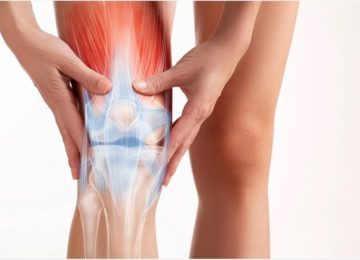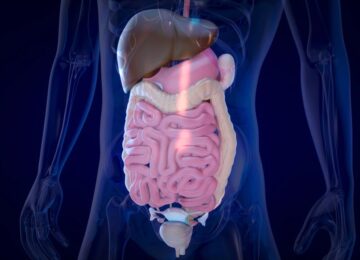Testosterone therapy involves the administration of testosterone to increase its levels in individuals, primarily men, whose bodies do not produce enough naturally. This treatment can be delivered through various methods including injections, patches, or gels.
What is Testosterone Therapy?
Testosterone therapy is a medical treatment aimed at restoring testosterone levels in the body to a normal range. This is particularly beneficial for those diagnosed with hypogonadism, a condition where the body produces insufficient testosterone.
How Does It Work?
Testosterone replacement therapy works by supplementing the body’s natural testosterone production. The therapy can be administered in several forms:
- Injections directly into the muscles
- Skin patches worn on the body
- Gels applied to the skin
Common Reasons for Use
Individuals may opt for testosterone therapy for various reasons, including:
- Improving sexual function
- Increasing muscle mass and strength
- Enhancing mood and energy levels
- Preventing bone loss
Physical Side Effects
Testosterone therapy can lead to various physical side effects that patients should be aware of. These effects can vary widely among individuals depending on the dosage, duration of therapy, and individual health factors.
Skin Changes
- Increased oiliness of the skin or acne is common as testosterone can stimulate the sebaceous glands.
- Some patients may experience a thickening of the skin or more pronounced skin aging.
Weight Fluctuations
- Testosterone therapy can cause both weight gain and weight loss. Weight gain is often due to increased muscle mass, while weight loss might occur due to decreased fat storage.
- Monitoring body weight and composition is crucial during therapy to manage these effects appropriately.
Hair Growth and Loss
- An increase in body and facial hair is a typical result of testosterone therapy, which might be desirable for some but bothersome for others.
- Conversely, it can also lead to hair thinning or male pattern baldness, particularly in those genetically predisposed to hair loss.
Emotional and Psychological Effects
Testosterone therapy can significantly alter emotional and psychological states. One of the most common effects is mood swings, where individuals may experience rapid changes in mood from euphoria to depression. This can be challenging not only for the person undergoing therapy but also for those around them.
Increased levels of testosterone are often associated with heightened aggression. While this can manifest as increased assertiveness, it can sometimes escalate into more problematic behaviors, making it crucial to monitor these changes closely.
The impact on mental health is profound, as hormonal changes can exacerbate existing mental health conditions or even trigger new ones. It’s essential for patients and healthcare providers to be vigilant about these potential changes and to discuss any psychological distress during therapy sessions.
Effects on Sexual Health
Testosterone therapy can have significant effects on sexual health, which may manifest in various ways depending on the individual’s response to the treatment.
Changes in Libido
Testosterone plays a crucial role in regulating libido. Therapy can lead to an increase in sexual desire in some individuals, while others may experience a decrease. Factors such as age, baseline testosterone levels, and overall health can influence these changes.
Fertility Issues
While testosterone therapy can improve certain sexual functions, it may also have adverse effects on fertility. The therapy can suppress sperm production, potentially leading to temporary or permanent infertility. Patients considering future fertility should discuss potential risks and alternative options with their healthcare provider.
Erectile Function
Testosterone is vital for maintaining erectile function. Therapy can improve erectile dysfunction in men with low testosterone levels. However, it’s important to note that results can vary, and some men might not experience any improvement. In some cases, other underlying health issues might also affect erectile function, necessitating a comprehensive approach to treatment.
Long-Term Health Risks
Testosterone therapy, while beneficial for many, carries potential long-term health risks that must be considered. These risks can affect various aspects of health, including cardiovascular health, liver function, and bone density.
Cardiovascular Health
- Increased risk of heart disease: Long-term testosterone therapy may lead to an elevated risk of cardiovascular problems such as heart attacks and strokes.
- Blood pressure changes: It can also cause fluctuations in blood pressure, necessitating regular monitoring.
Liver Function
- Potential liver damage: Extended use of testosterone supplements can strain the liver, potentially leading to conditions like liver fibrosis or cirrhosis.
- Monitoring liver enzymes: Regular blood tests are crucial to check for elevated liver enzymes, indicating liver stress or damage.
Bone Density
- Risk of osteoporosis: Prolonged testosterone therapy might lead to decreased bone density, increasing the risk of fractures and osteoporosis.
- Bone health monitoring: It is important to monitor bone density periodically to prevent severe bone health issues.
Interactions with Other Medications
Testosterone therapy can interact with various medications, potentially altering their effects or increasing side effects. Understanding these interactions is crucial for managing health effectively.
Common Drug Interactions
- Blood thinners like warfarin may have increased effects, leading to a higher risk of bleeding.
- Diabetes medications might require adjustments as testosterone can influence blood sugar levels.
- Medications for heart conditions, such as beta-blockers, can interact, necessitating careful monitoring of heart health.
Impact on Chronic Conditions
Testosterone therapy can exacerbate or alleviate symptoms of certain chronic conditions. For instance:
- It may worsen sleep apnea, complicating respiratory issues.
- Patients with congestive heart failure should approach testosterone therapy with caution due to fluid retention risks.
- Conversely, it might improve symptoms of diabetes by aiding in weight management and insulin sensitivity.
Consulting Healthcare Providers
It is essential to consult healthcare providers before starting testosterone therapy, especially if other medications are being used. This ensures a tailored approach to treatment that considers all existing health factors and medications. Regular follow-ups allow for adjustments based on response to therapy and any side effects experienced.
Monitoring and Managing Side Effects
Testosterone therapy, like any medical treatment, requires careful monitoring to manage and mitigate potential side effects. Regular health check-ups are crucial. During these visits, healthcare providers can perform necessary tests to monitor hormone levels and other vital indicators affected by testosterone therapy. Adjusting dosages may be necessary if side effects become problematic or if the desired outcomes are not being met. Lifestyle adjustments also play a critical role in managing side effects. Patients are often advised to maintain a balanced diet, engage in regular physical activity, and avoid activities or substances that could exacerbate side effects.












